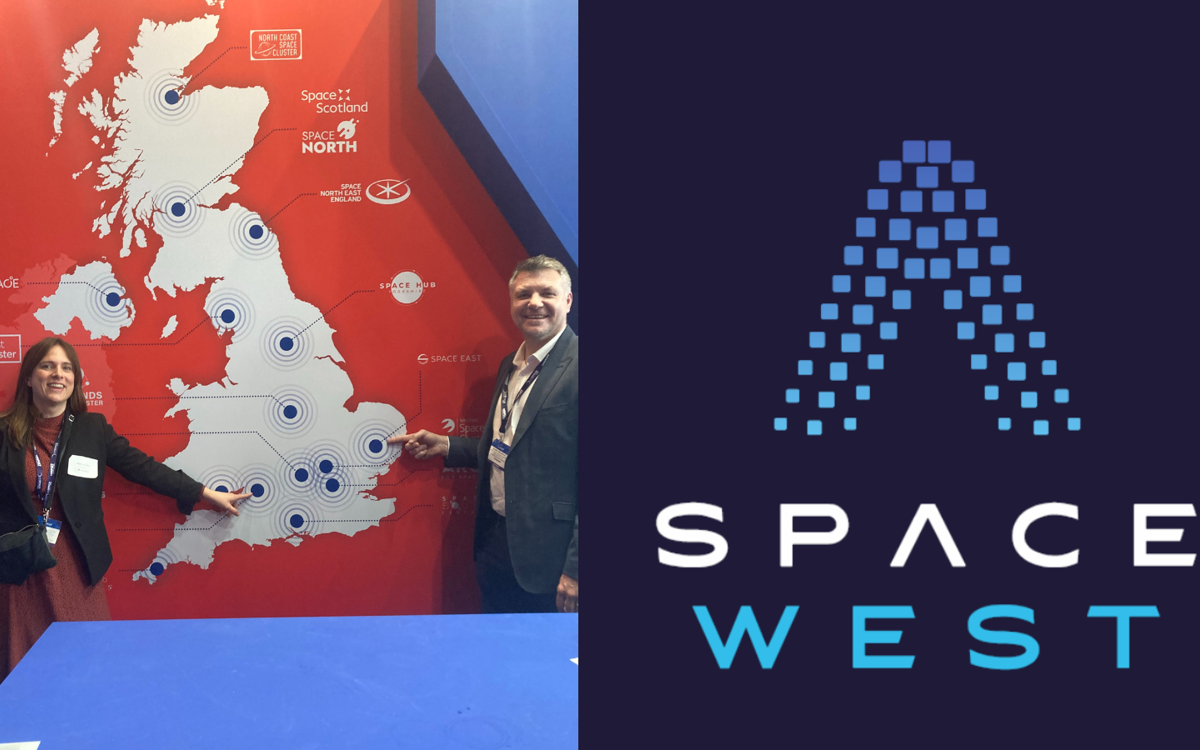
Space West - July Newsletter
News from the Cluster
Welcome to the July edition of our Space West Newsletter. With each newsletter, we aim to share the most recent discoveries, advancements, and stories from the world of Space in the South West.
About Space West
Space West is a regional consortium of academic and industry partners designed to accelerate growth and innovation in the space sector within the region and nationally. The Space West programme is hosted by the National Composites Centre, in partnership with West of England Combined Authority, the Centre for Modelling and Simulation, the University of Bath, the University of Bristol and the University of the West of England.
Space West Regional Map
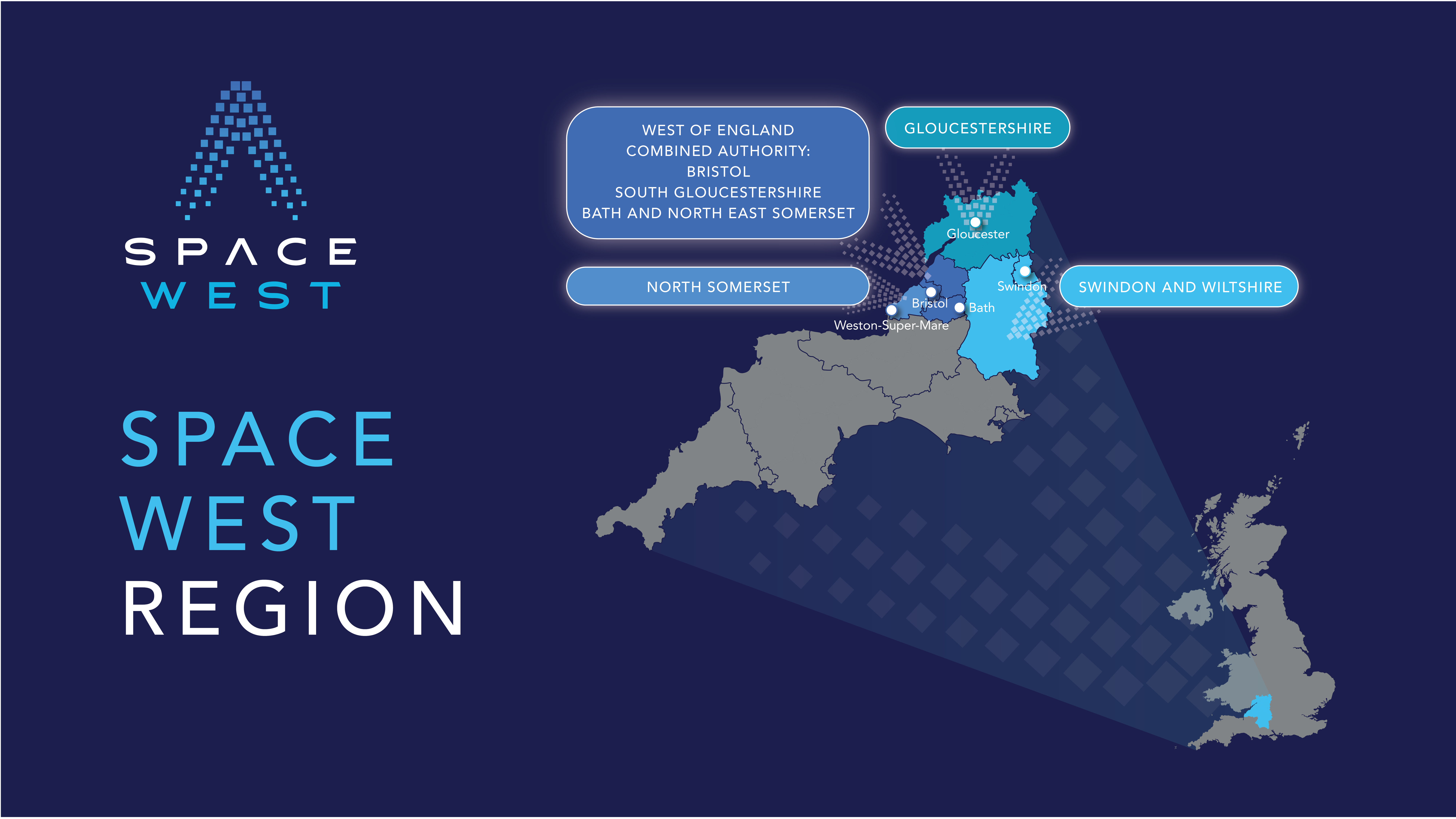
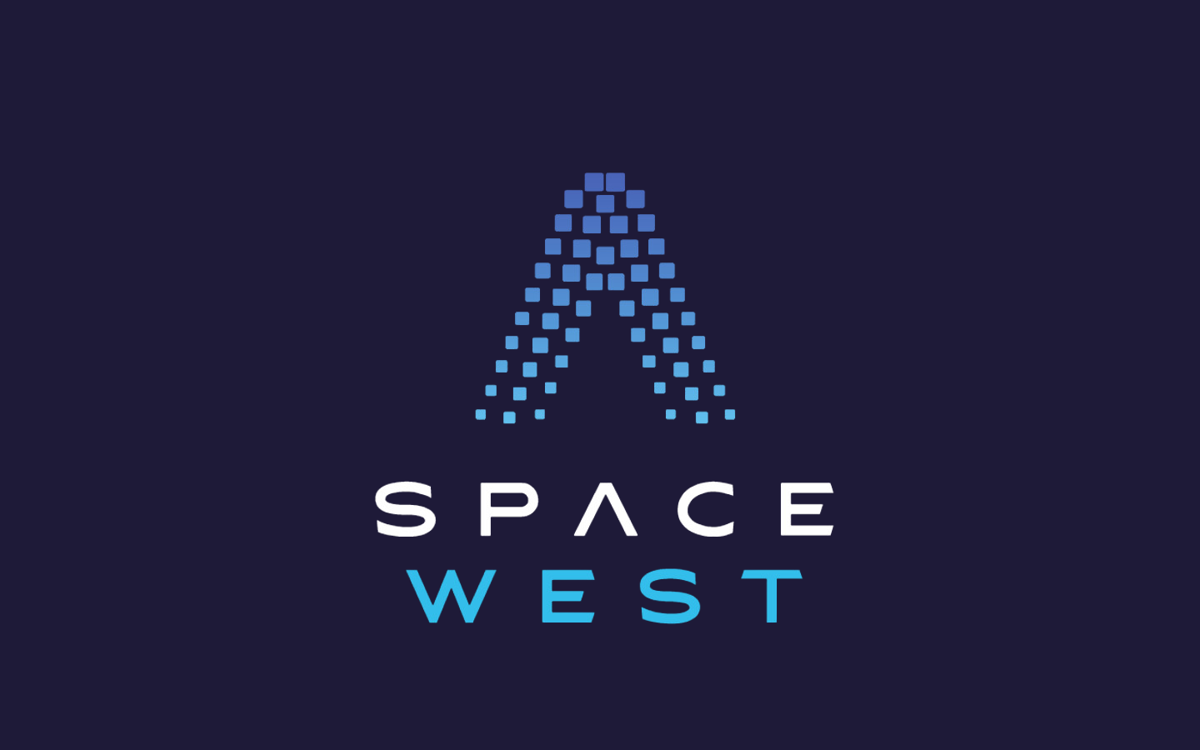
What does a new Government mean for the Space Sector?
This month has seen the dawn of a new government with Labour taking an unprecedented number of seats in Parliament, commanding a strong majority..
So what does this mean for the space sector?
Strategic partnership with business
Among the myriad of policy areas that the new government is poised to transform, the space sector stands out as a particularly exciting and ambitious focus. The keynote from Secretary of State for Science, Innovation and Technology, Peter Kyle on Monday 22 June in the Space Zone at Farnborough International Airshow gave us some clues as to how Labour will leverage the space sector to drive economic growth- a key pledge in the Labour party election campaign. Kyle spoke of making hard choices, focusing effort and investment to provide a clear signal to industry and ‘forge a strategic partnership with businesses, researchers, and investors.’.
The Labour party whilst still in opposition, recognised the challenges that short-term funding cycles pose on building capability in emerging science and technology areas. These problems are particularly acute for the space sector where missions can take a decade to deliver. A commitment to 10 year budgets for R&D institutions, and a sharp focus on areas where the UK can be a global pioneer, will no doubt be welcomed by the sector.
Space for Innovation and opportunity
Labour has been clear inseeing innovation as a route to economic growth, with a commitment to ensure spin-outs and start ups are supported through access to finance, simplified procurement and improved regulatory processes. This support for new and innovative companies to set up and scale quickly in the UK is great news, especially since the UK space sector has more SMEs than anywhere else in Europe and an outstanding research base.
Space for Security
Peter Kyle, was clear that he sees space technologies as a cornerstone of national security. A labour commitment of 2.5% on defence has already seen the government kick-start a strategic defence review, which it is understood to be taking an innovative approach to understanding the most critical challenges and opportunities for UK Defence. Furthermore the commitment to deliver a defence industrial strategy, focused on investing in sovereign capability and British business to reinforce national resilience and economy will be welcome news for UK space sector businesses. The pace at which this is taking place highlights the recognition that the volatile global climate requires UK government to work at pace to strengthen our space defence capability to deliver UK security and prosperity.
This is all good news for the sector, but with competing priorities and a challenging economic picture, it is imperative on each of us in the sector across the regions to go out and speak with our MPs. This will help them understand the importance of space to our economy so they can champion it in the halls of Westminster.
For a full transcript of SoS Peter Kyle’s speech at Farnborough please see here link to webpage.
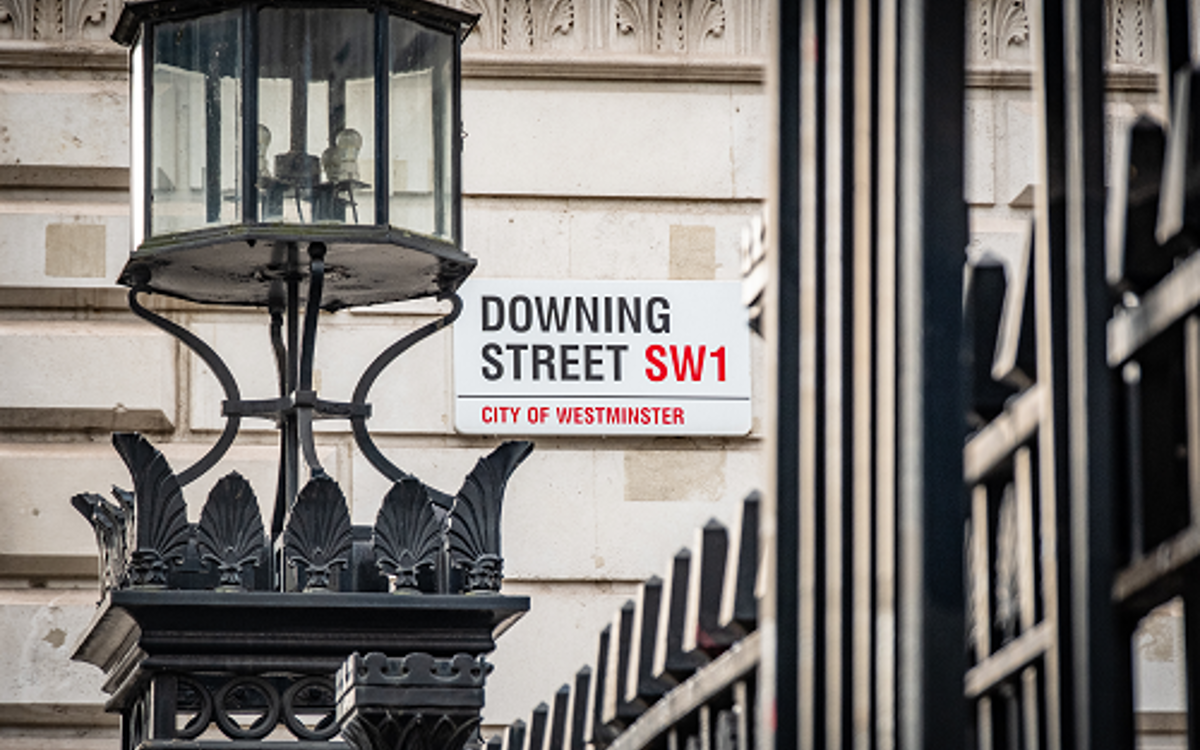
£33 million boost for national space programme
More than 20 national space projects have been announced this month by The Department for Science, Innovation and Technology (DSIT) Secretary of State Peter Kyle, on the opening day of the Farnborough International Airshow.
The projects, worth £33 million, come from the UK Space Agency’s National Space Innovation Programme – designed to invest in high-potential technologies, drive innovation and unlock growth across the UK.
Eight major projects will receive £24 million of the total amount. These include funding for a sub-orbital rocket test by HyImpulse (Glasgow) from SaxaVord spaceport in Shetland, support for Rolls Royce (Derby) to develop micro reactors to support space exploration, and backing for Cambridge University spin-out SuperSharp to develop and launch a heat-detecting telescope to gather data that can be used to help tackle the climate crisis.
DSIT Secretary of State Peter Kyle said:
'Space technologies play an important role in many aspects of our day to day lives.
'Backing the growth of UK space companies is also essential for driving economic growth, boosting productivity, and creating wealth in every community.
'Our £33m investment in these projects highlights the huge potential of the UK’s space industry, especially as we collaborate with international partners.'
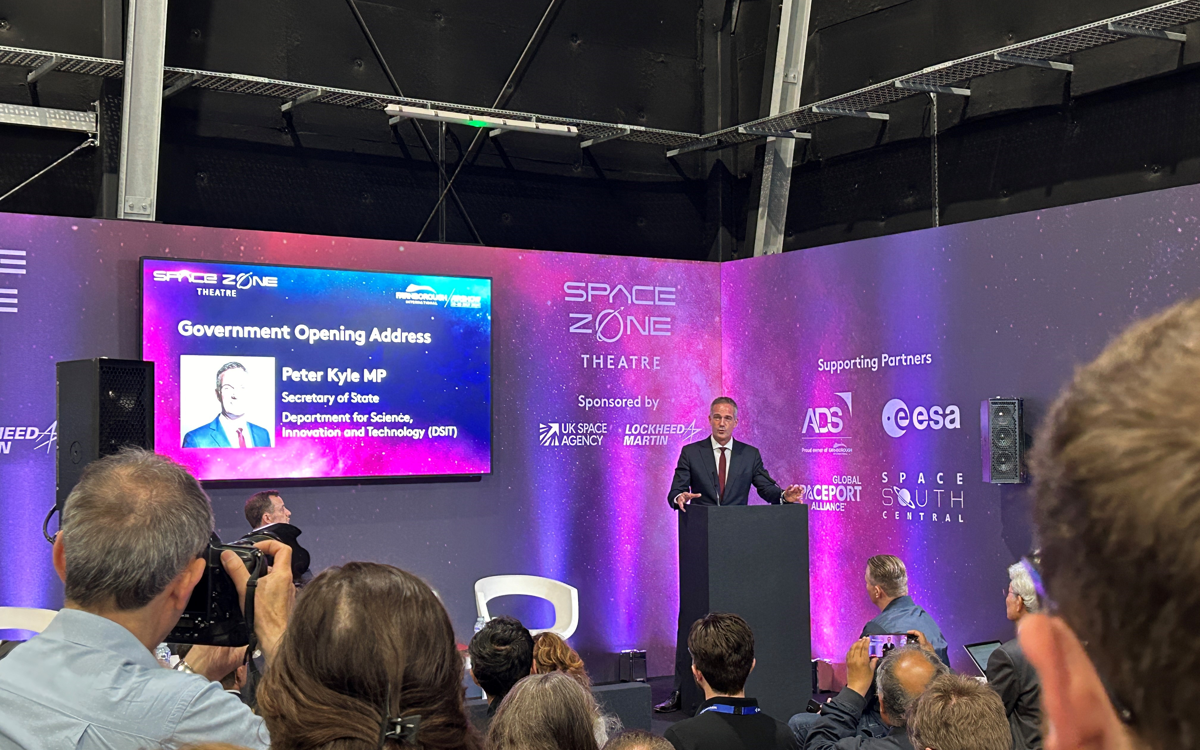
Space West at Farnborough International Airshow 2024
Rebecca Huffee, Space West Cluster Manager, reflects back on Space West's first Farnborough International Airshow earlier this month.
Space West attended Farnborough International Airshow for the first time this week and it was a pleasure to be hosted by our Space Cluster Partner on the Invest Bristol & Bath stand. It was a busy couple of days, and taking new businesses on a walk around of the space zone, introducing them to my fellow cluster leads, friends of the cluster, and key stakeholders proved to be very valuable with many setting up further meetings to pursue opportunities off the back of those introductions.
Space West also joined forces with Invest Bristol & Bath and the Cornwall Space Cluster as part of the South West Space Partnership to host a networking event on Monday evening bringing together over 90 representatives from international and regional businesses. It was great to showcase our regional capability as well as the commitment of our regional businesses to champion the region and the opportunities that lie within.
After an exhausting two days there are multiple international leads to follow up on as well as more connections with regional businesses uncovered at the event, it has been a hugely successful two days. Thanks to all of those who joined us on Monday evening and a particular thanks to the Halo team for bringing the event together.
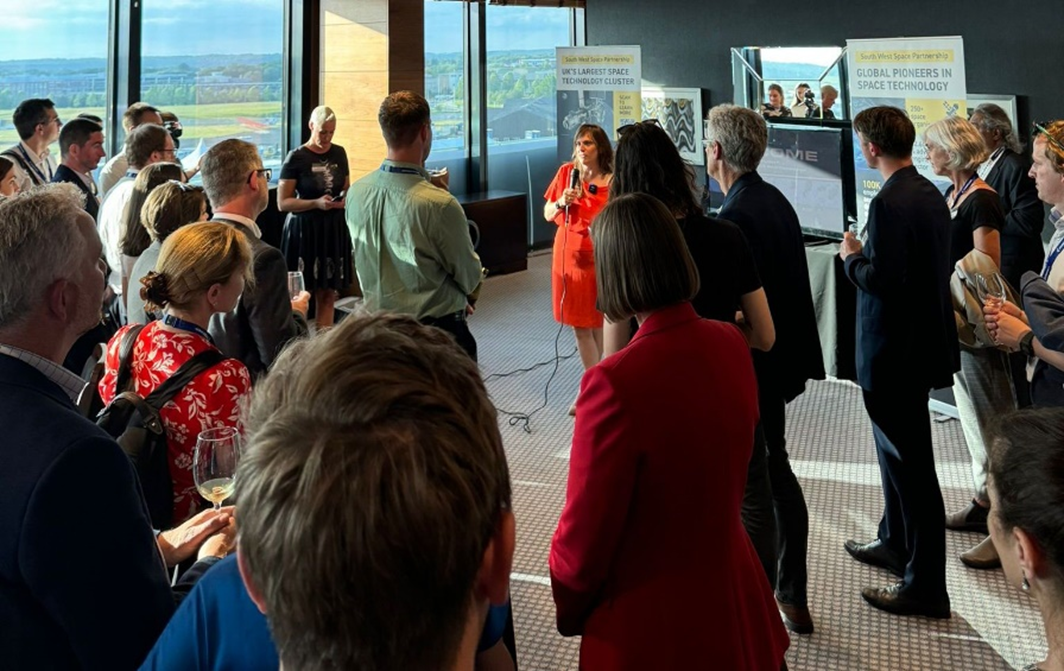
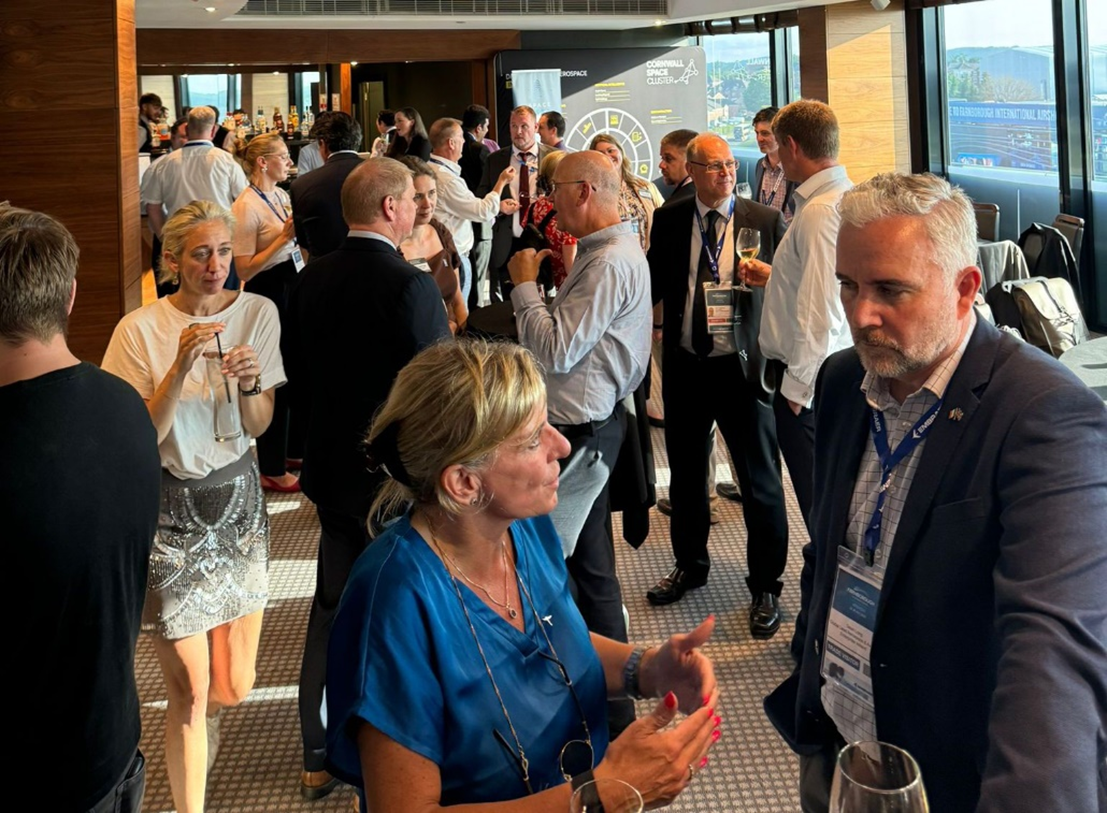
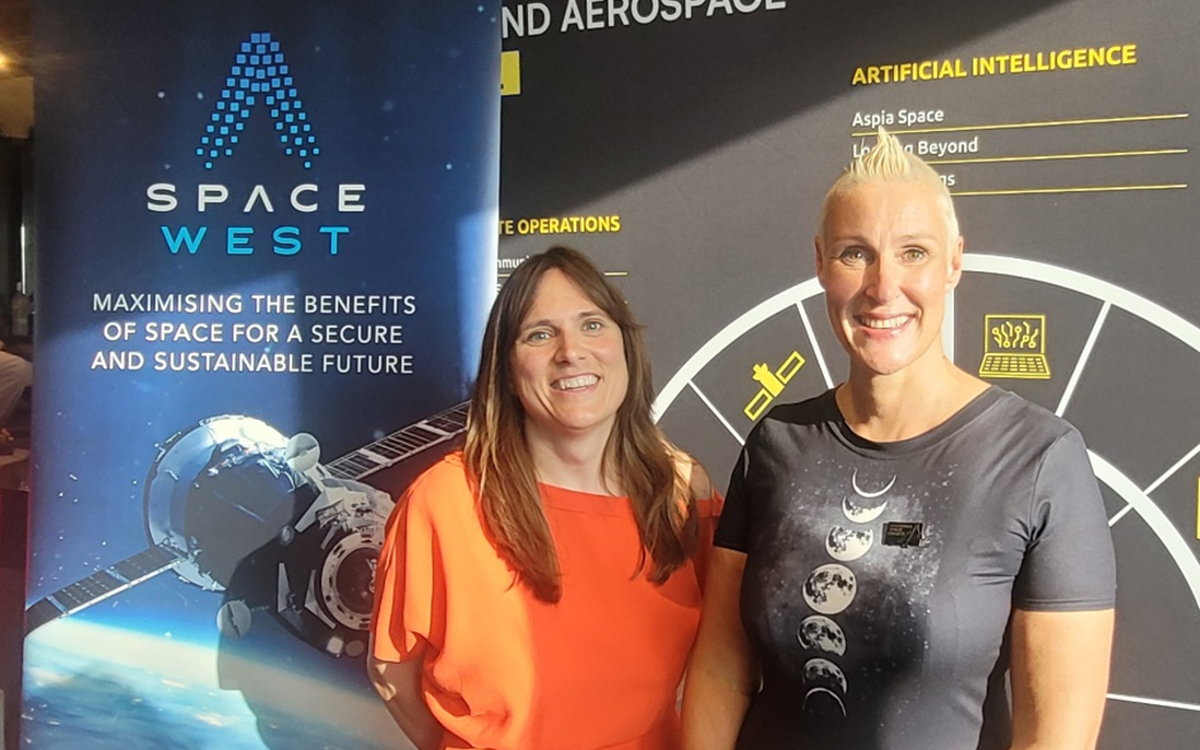
Unlocking opportunities with the European Space Agency: ESA 101 Workshops
The Space Clusters in the South West - Space West, Space Wales, and Cornwall Space Cluster have teamed up with the UK Space Agency to bring you the European Space Agency (ESA) 101 Workshops in Cardiff and Exeter this August.
Join our networking session afterwards with experts and like-minded individuals. Register today here:
Cardiff - Thursday 1 August
Sign up for the Cardiff ESA 101 workshop
Sigh up for the Cardiff networking event
Exeter - Friday 2 August
Sign up for the Exeter ESA 101 workshop
Sigh up for the Exeter networking event
Don't miss these opportunities to learn and connect with the space community.
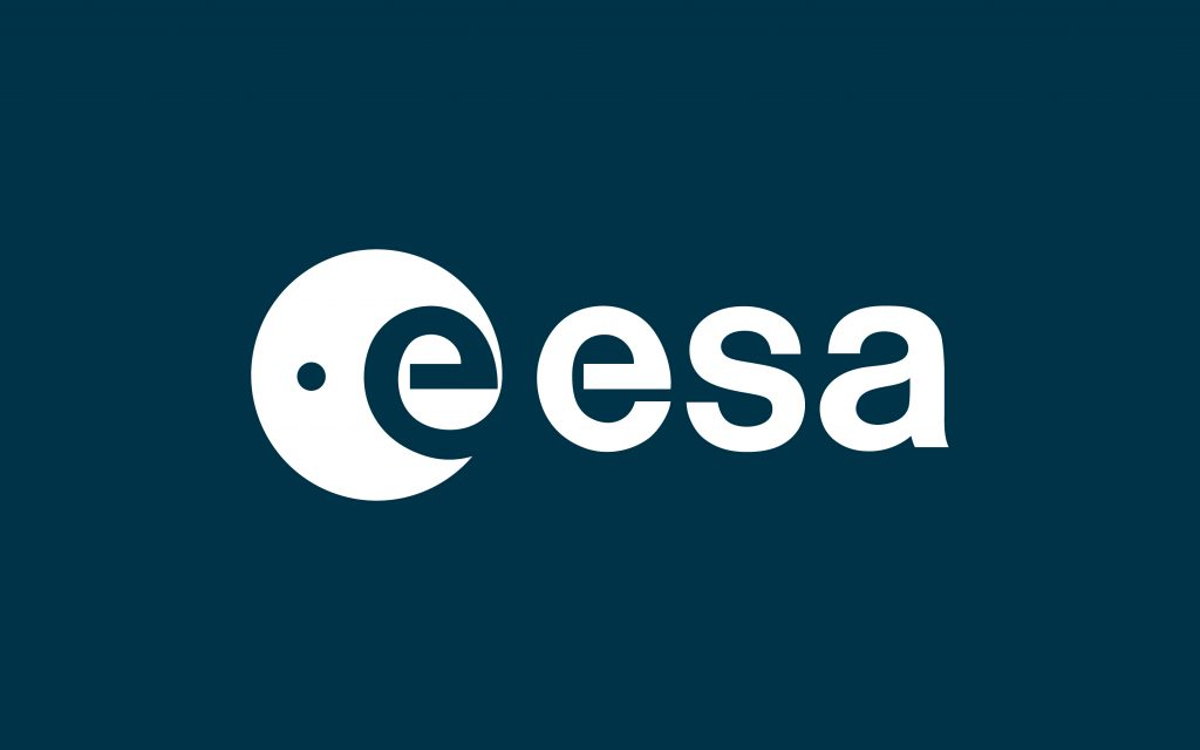
Save the date for ISTARI Industry Day on September 5
The ISTARI Industry Day, organised by the Ministry of Defence's Space Delivery Team, will take place on September 5, 2024, in Swindon. This event will brief industry on the ISTARI program, which aims to deliver the UK's Space-Based Intelligence Surveillance Reconnaissance (SB-ISR) capabilities. The day will include presentations, networking opportunities, and discussions on the future operational elements of ISTARI. Registration is required by July 31, 2024, and attendees must have a minimum of BPSS security clearance.

UK Space Agency Accelerator
We are thrilled to announce that the Leo and Geo programmes are returning for their third cohort, and
applications are now open!
The programmes support entrepreneurs to build high-growth, scalable space companies and cement
relationships with an amazing cohort of like-minded people.
Leo is ideal for entrepreneurs with a proof of concept in place, and who are embarking on their business journey.
Geo is perfect for those with strong market traction with over £500k in funding raised or annualised sales run rate, and now looking to scale up at pace.
Do you know an entrepreneur eager to scale their business to global success within the space sector? If so, the Leo and Geo programmes can be the launchpad to take their businesses to the next level!
Applications close on the 18th of August 2024. Limited spots are available on these highly coveted programmes, so we encourage you to apply at your earliest convenience.
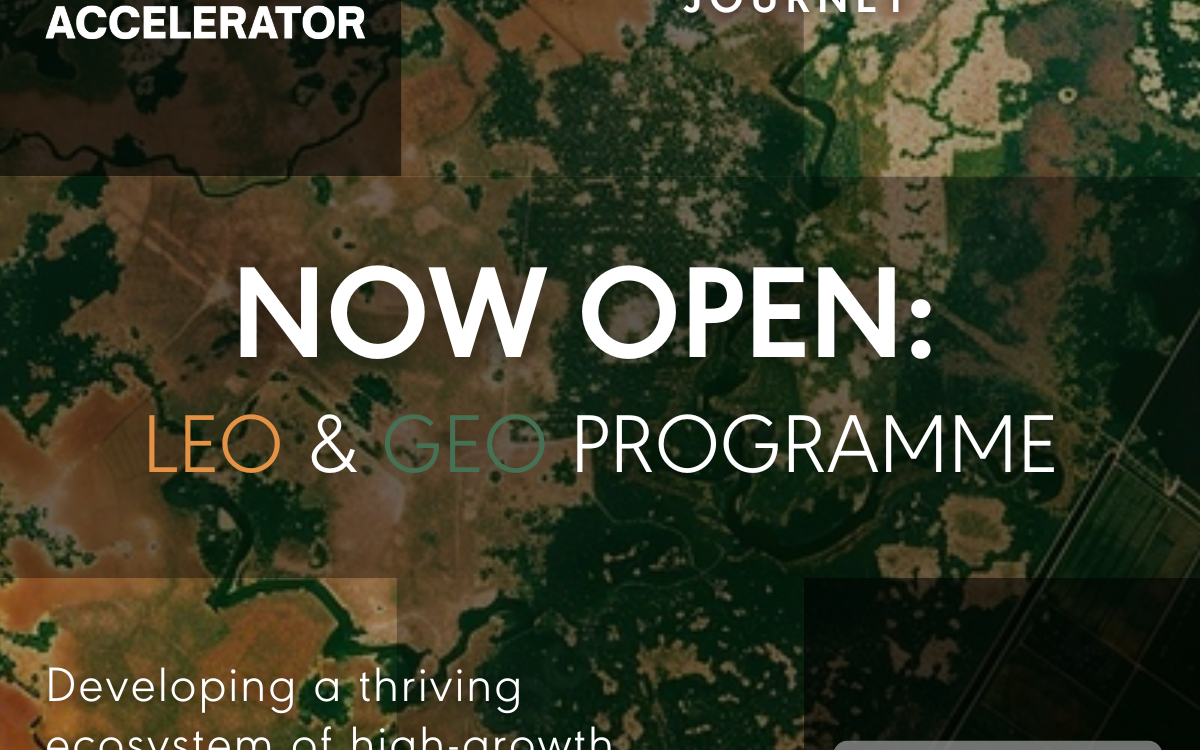
Boost Your business with NPL funding
The National Physical Laboratory (NPL) has launched Measurement for Business (M4B), offering access to specialist measurement science and engineering experts and facilities at no charge. This initiative is designed to help your business grow by accelerating your product or service to market and providing confidence in your data for potential investors.
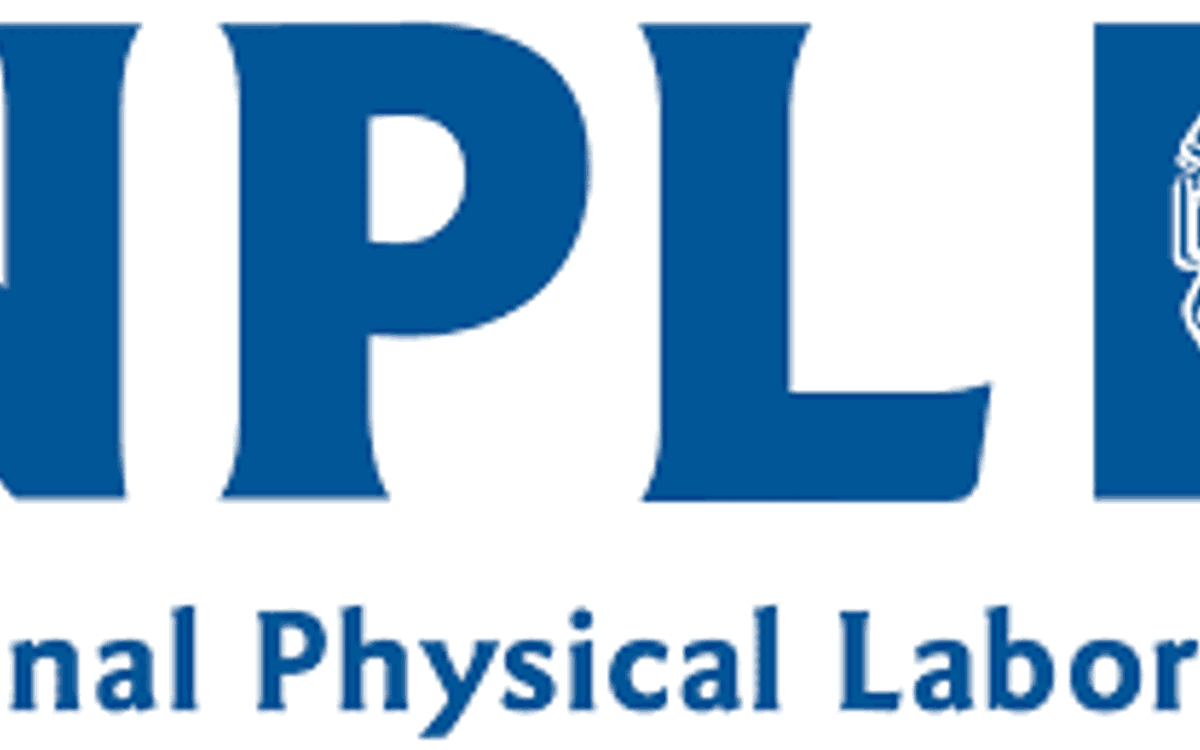
Exploring Business Models for Space ISAC
The Space Information Sharing and Analysis Center (ISAC) aims to enhance global collaboration in addressing vulnerabilities, incidents, and threats in the space sector.
On 24 July 2024, a cyber workshop at the University of Bristol explored business models for establishing a Space ISAC in the UK, focusing on improving information dissemination and sector-wide communication.
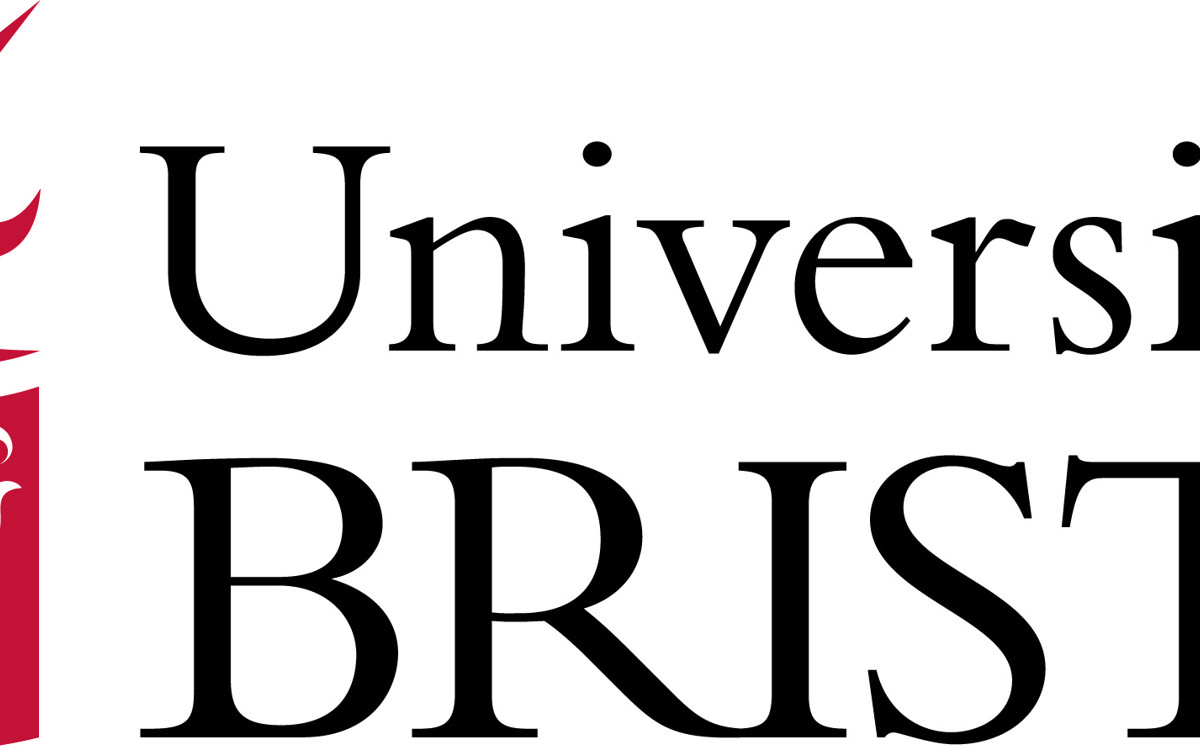
Spotlight on Spirent
Check out our 'Spotlight' on section to discover stand out companies making waves in the regions space industry. Learn about innovations, achievements, products and contributions to the field.
Positioning, navigation and timing (PNT) is a critical part of our lives. Primarily sourced from global navigation satellite systems (GNSS) such as GPS, the increasing reliance on precise and robust PNT data means space impacts all our lives, all the time. From energy grids to financial transactions, and from commercial aircraft to the phones in our pockets, governments, businesses, and consumers depend on this data.
Based in Paignton, Spirent Communications has been the global leader in test instruments and solutions for GNSS since the advent of GPS in the 1980s. From the first commercial GPS simulator to the world’s most advanced PNT test instruments today, Spirent has worked alongside the leading entities in space and space-enabled technology for 40 years.
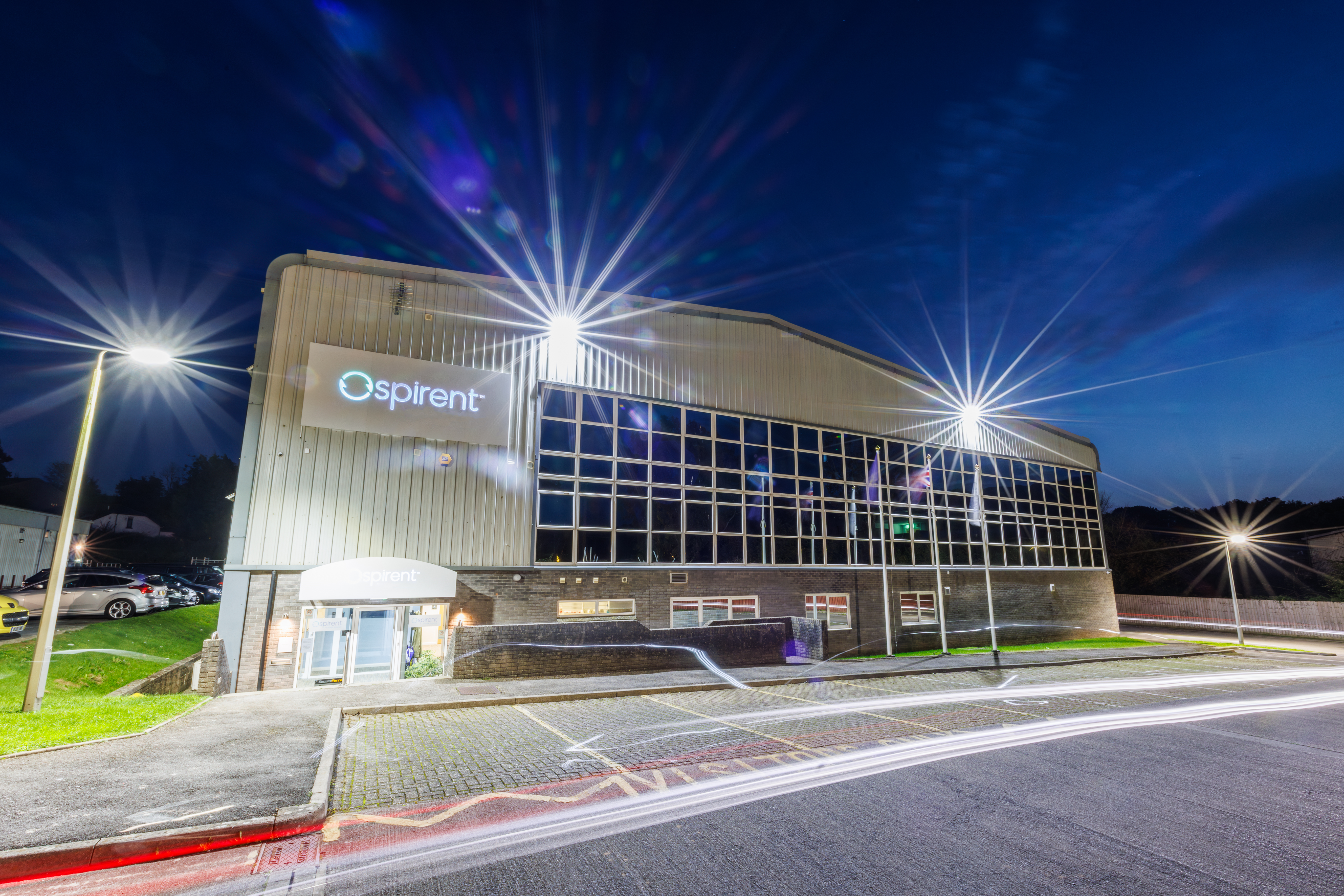
As well as playing a key role in the establishing of the global constellations we all depend on, Spirent has continued to play a leading role in further developments. The current explosion in organisations and technologies looking to take advantage of low Earth orbit (LEO) constellations, and the multi-agency efforts to establish infrastructure on and around the Moon, are examples of key areas Spirent is supporting.
Our goal is to enable our customers to assure their products and services through comprehensive testing. Our commitment to excellence and the unrivalled realism of our test environments means our users can realise benefits that include:
- Saving time and money on expensive and unrepeatable field testing
- Generating deterministic data to accelerate product development
- Accessing bespoke solutions to support cutting-edge developments
Most importantly in competitive and fast-paced industries, our customers know they can depend on Spirent and our test solutions. Especially for space applications, there is no margin for error and no opportunity to prove systems in the field. With Spirent, developers and explorers know they can launch systems safely, securely, precisely, and with complete confidence.
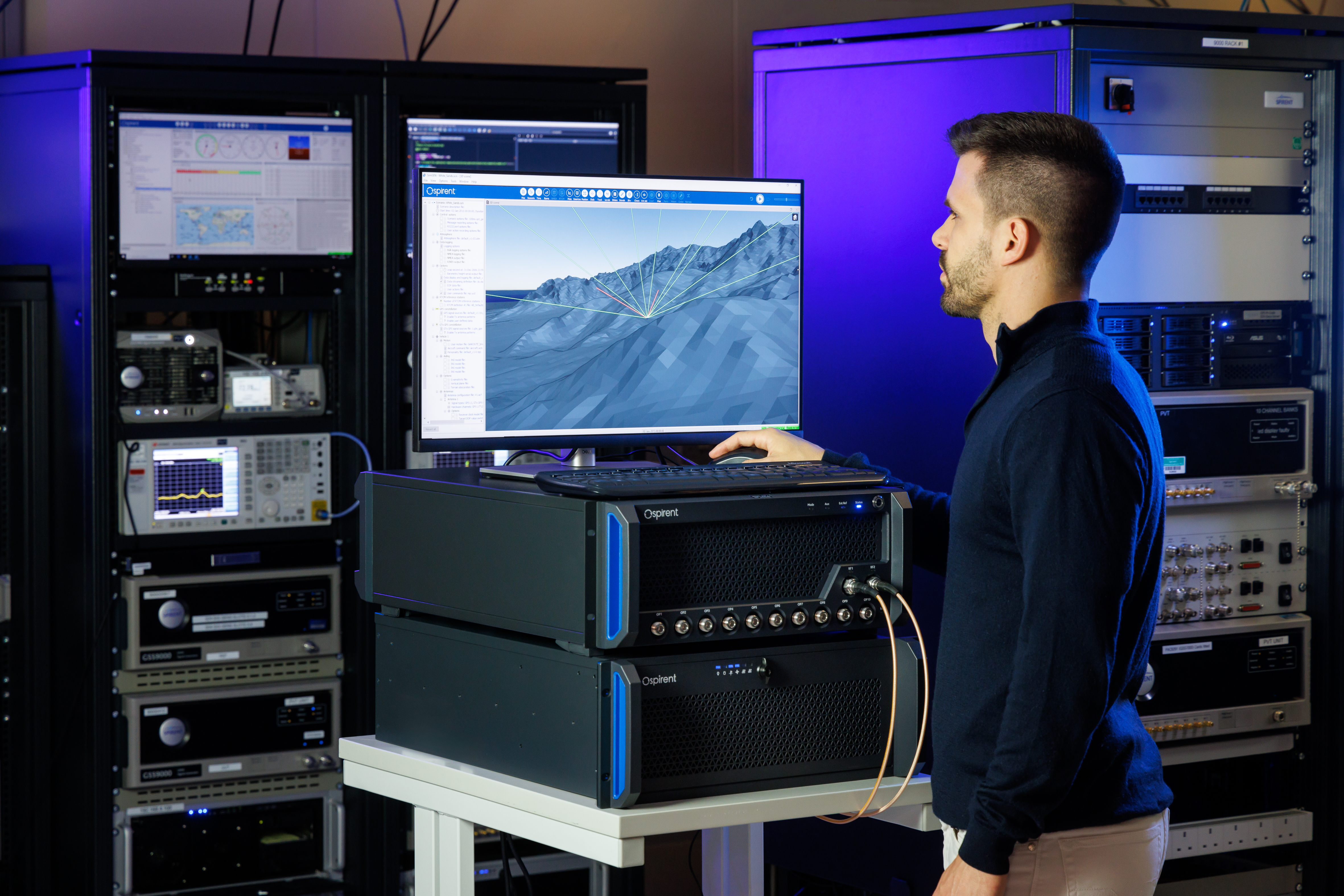

Research in Focus
Explore academic research happening right here in the region. Stay informed about the latest advancements and contributions from our local scientific and engineering community.
University of Bristol students seek funding for PhD research programme - Project Avona: A sustainable vision for the space industry
Project Avona is on a mission to enhance sustainability within the space industry through five postgraduate research programmes. Each project stands alone yet converges on the critical goal of making space activities more sustainable.
To bridge the gap between research and industry, Project Avonda will conduct a series of high-altitude launches over the next four years. These missions are crucial for elevating the technology readiness level of our research by ensuring each project withstands the rigor of real flight conditions.
Founded during their first undergraduate year, a team of five students sought to channel their passion for space into meaningful projects during the pandemic. Their journey has led to the creation of five rockets, with their latest reaching an altitude of 3 km. Currently, they are developing a bi-propellant liquid engine and a drag-optimised airframe to advance Project Avona.
Over the past four years, the team has deepened their knowledge of rocketry and recognised the urgent need for sustainability in the space industry. This realisation birthed Project Avona.
Meet the Team and their Research Focus
- Ben Brown: Analysis and Realisation of an Altitude Compensation Nozzle
- Alex Walsh: Analysis on the Atmospheric Impact of Rocket Engine Orbital Insertion Emissions
- Angeline Pang: Environmental Impacts of Hydrogen Generation and Combustion
- Jacob Cox: Analysis of Low Carbon Composite Stressed Member Aerostructures
- Lillian Macbeth: Fire Analysis of Low Carbon Flame Trench Structures

If you are interested in funding opportunities and taking these projects to new heights, contact [email protected].

Opportunities
Stay up to date with the latest grants and funding support available in the space industry. Propel your projects and research to new heights!
A new Executive development opportunity is now available for Defence and Space sector personnel, with your requirements specifically in mind.
The University of Exeter is pleased to be part of the Global Executive MBA (Defence and Space) (GEMBA) partnership, working alongside the University of South Australia (UniSA) and Carnegie Mellon USA, to deliver an innovative approach to supporting current and future leaders in Global Defence and Space.

Run by the Defence and Security Accelerator (DASA) aims to inspire companies to win new business, develop industrial capabilities, and provide new cutting-edge answers to defence problems at home and abroad, ensuring the UK expands its competitive, pioneering and world-class defence and security industries. The £16 million programme is designed to support small and medium-sized enterprises (SMEs) across the UK to develop innovative materials, technologies and processes, and to enhance defence supply chains.

A notice of a key ESA Space Solutions theme for 2024: Commercial Applications of Space-Enabled Robotics
This funding is looking to combine some of the breakthroughs in robotics (enhanced autonomy, dexterity, and interaction capabilities) with parallel advancements in the space sector meaning that satellite technologies now have the capability to enable novel services utilising robotics.
There will be 6 sub-theme dates through 2024:
Smart Cities and Infrastructure: 1st March 2024 – 1st May 2024
Transportation and Logistics 1st April 2024 – 1st June 2024
Energy and Utilities: 1st May 2024 – 1st July 2024
Health and Safety: 1st June 2024 – 1st September 2024
Maritime: 1st September 2024 – 1st November 2024
Agriculture: 1st October 2024 – 1st December 2024

West of England Combined Authority are supporting businesses in the region to explore the benefits from the implementation of digital technologies. Providing access to grant funding, bespoke expertise and guidance for your business as well as skills and training.

The European Space Agency (ESA) is Europe’s gateway to space. Its mission is to shape the development of Europe’s space capability and ensure that investment in space continues to deliver benefits to the citizens of Europe and the world.

The Defence and Security Accelerator find and fund exploitable innovation to support UK defence and security quickly and effectively. Check it out for open calls for funding.
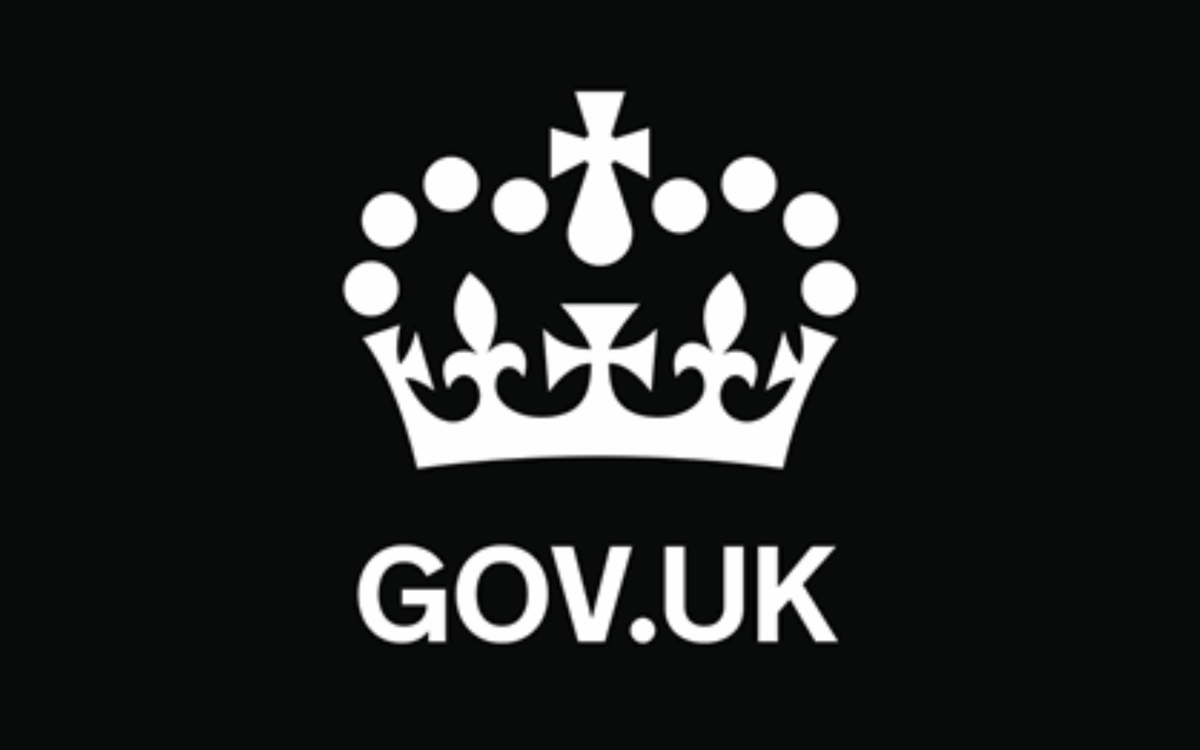
The EO DataHub (EODH) programme has been instigated by UKRI to address challenges around effective exploitation of Earth Observation Data. It represents a first phase of a national asset, supported by the government and specified with the Department of Science, Innovation and Technology (DSIT) alongside NERC. The programme is a pathfinder project led by the National Centre for Earth Observation and a partnership of public sector bodies.
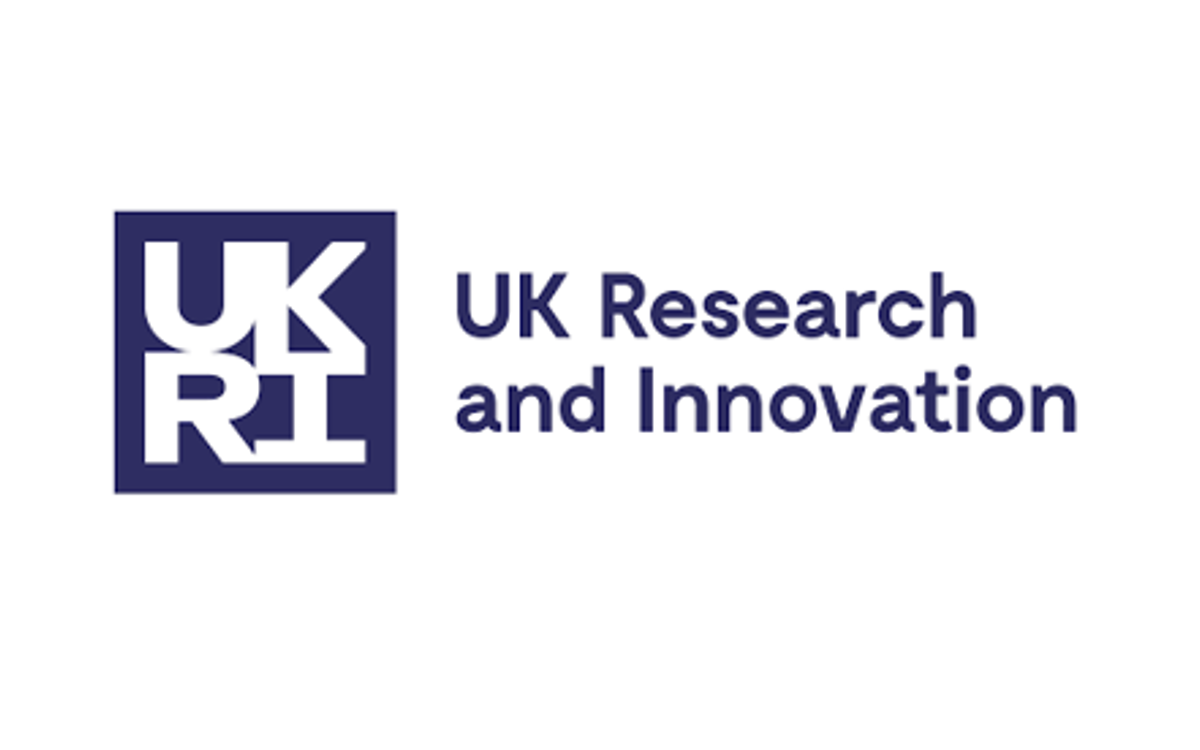
ESA's ARTES Core Competitiveness programme helps European and Canadian industry to develop innovative satcom products, services, systems and partnerships.

The South West Investment Fund is the first in a series of new Nations and Regions Investment Funds being launched by the British Business Bank, and it will deliver a £200 million commitment of new funding to the area. The fund aims to drive sustainable economic growth by supporting innovation and creating local opportunity for new and growing businesses across the South West.

This year, the UK Space Agency is looking to support projects which contribute knowledge relevant to future human and robotic exploration missions.
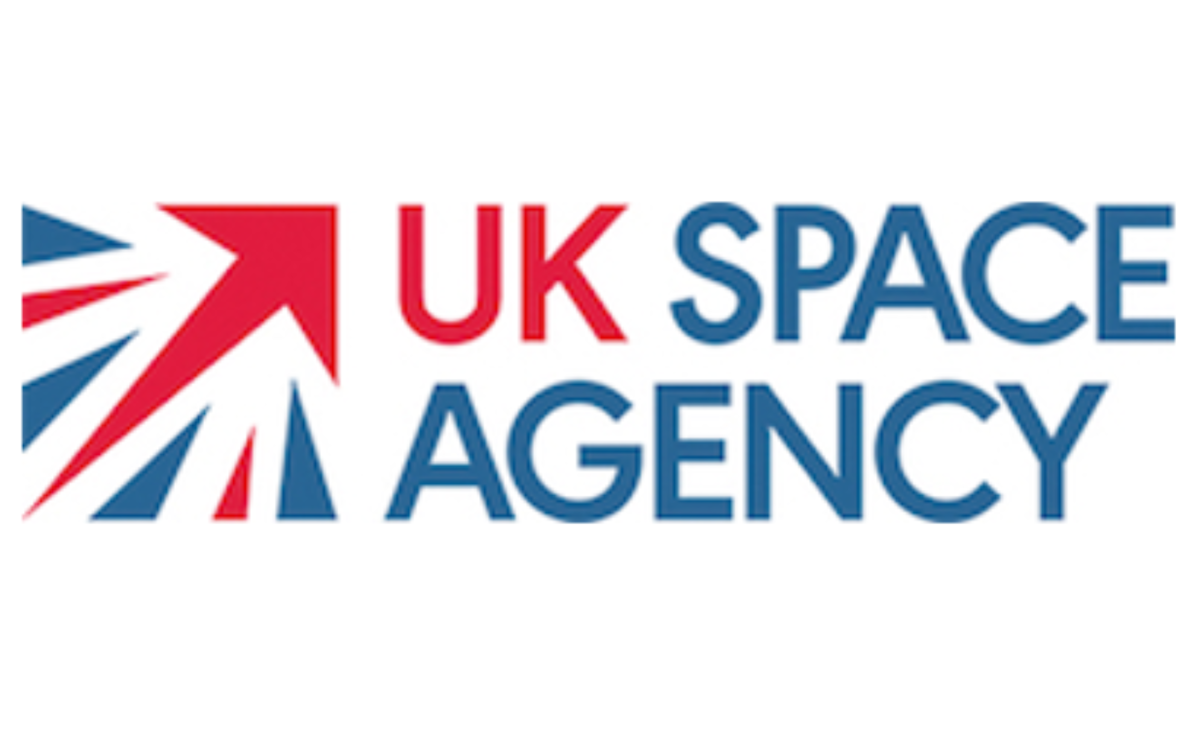
The purpose of this announcement opportunity is to support academics who have been selected for groups and/or science teams, campaign science groups and other definition work relating to Exploration missions.

Since 2017, the UK has invested €50 million into NavISP to support the UK space PNT sector to innovate the next generation of space-enabled and space-supported navigation products, services and applications.
The UK investment in the programme is available to support UK organisations to undertake technology research and development focused on commercial innovation.

The UK Space Agency is looking to provide support to companies and academic institutions across the UK in developing innovative technologies to grow UK capability. We are keen to engage with start-ups and SMEs (from both within and outside the space sector), as well as established companies and organisations. Collaborative proposals are also welcomed.

Events
Check out our events section to stay informed about upcoming conferences, workshops and networking opportunities in the region. Connect, learn and grow with the best in the field!
The Space Clusters in the South West - Space West, Space Wales, and Cornwall Space Cluster have teamed up with the UK Space Agency to bring you the European Space Agency (ESA) 101 Workshops in Cardiff and Exeter this August.
Join our networking session afterwards with experts and like-minded individuals. Register today.

The Space Clusters in the South West - Space West, Space Wales, and Cornwall Space Cluster have teamed up with the UK Space Agency to bring you the European Space Agency (ESA) 101 Workshops in Cardiff and Exeter this August.
Join our networking session afterwards with experts and like-minded individuals. Register today.

This webinar will focus on how Simcenter 3D, HEEDS, and Simcenter Amesim are being utilized in Northrop Grumman’s on-orbit satellite servicing programs to reduce operational risk and predict with a high probability of success the environment in which the robotic systems operate.

Every two years, the aerospace, aviation and defence industries are invited to Farnborough International Exhibition & Conference Centre for the world’s best airshow to pioneer change, build new connections, engage with thought leaders and get access to unparalleled business development opportunities.
Rebecca Huffee, Space West Cluster Manager, will there on behalf of Space West.

Don't miss Defence in Space a two-day free International event tackling a diversity of topics from both the industry & the public sector. Rebecca Huffee, Space West Cluster Manager will be there. Topics include MilSat, Space ISR, Space Domain Awareness, Earth Observation, Geospatial, Multi-orbits, PNT, Satcom, Space Security & Cyber and Defence Strategies. This conference is free of charge and organised by and for the Space & Defence industry.

Defence Space brings together senior UK military and government official, space commanders from international space partners and allies, and leaders in disruptive technologies., including the SME and the start up communities. Defence Space coheres military space strategy and operations with space technology innovation.
Rebecca Huffee, Space West Cluster Manager, will there on behalf of Space West.

Space Tech Expo Europe is Europe’s largest B2B event for the space industry. At the show, you can expect to see a variety of space technologies used in manufacturing processes.
Rebecca Huffee, Space West Cluster Manager, will there on behalf of Space West.
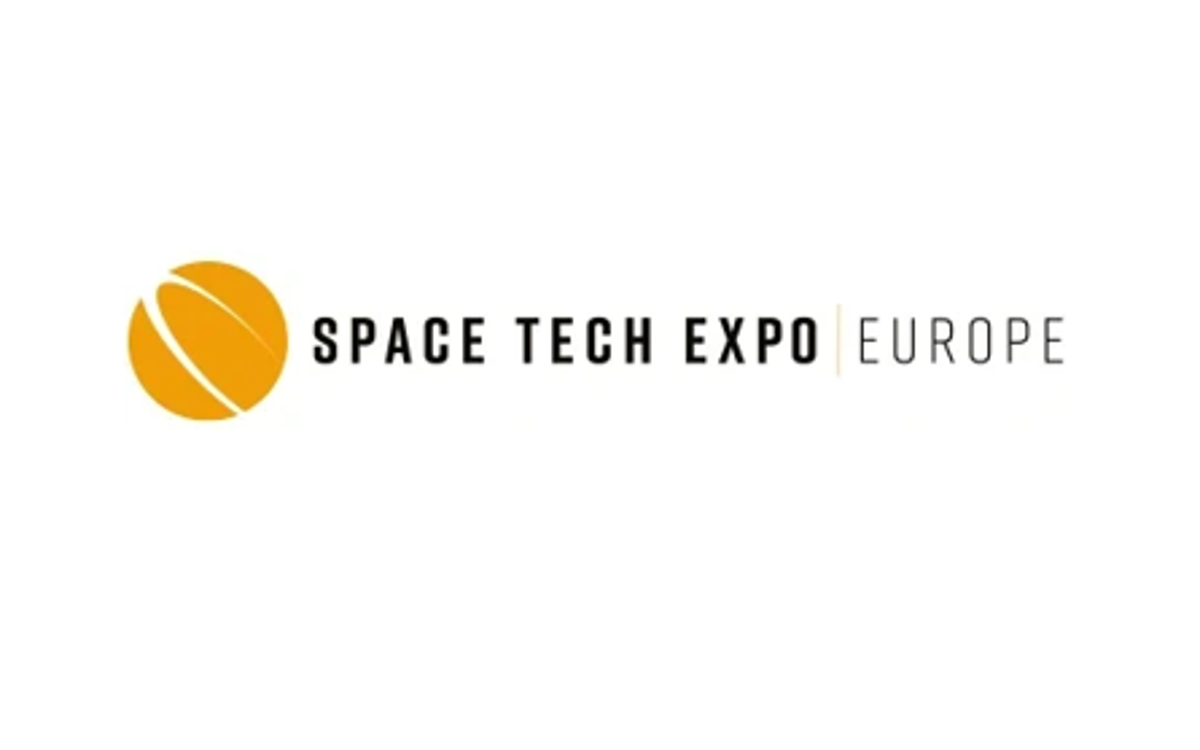
Jobs in the Space West Region
Looking for your next career move in the space industry? Explore our jobs section to find exciting opportunities right here in the region. From engineering roles to business development, your dream job in space awaits!
The role
As an Assistant Chief Engineer you’ll have a role that’s out of the ordinary. Mission Systems enable our customers to deliver their mission, through our products and solutions, using intelligence and analysis and delivering critical communication services. Our aim is to be at the centre of our customers' modern digital backbone by connecting and delivering sensors, decision support, and air effectors across military and business domains.
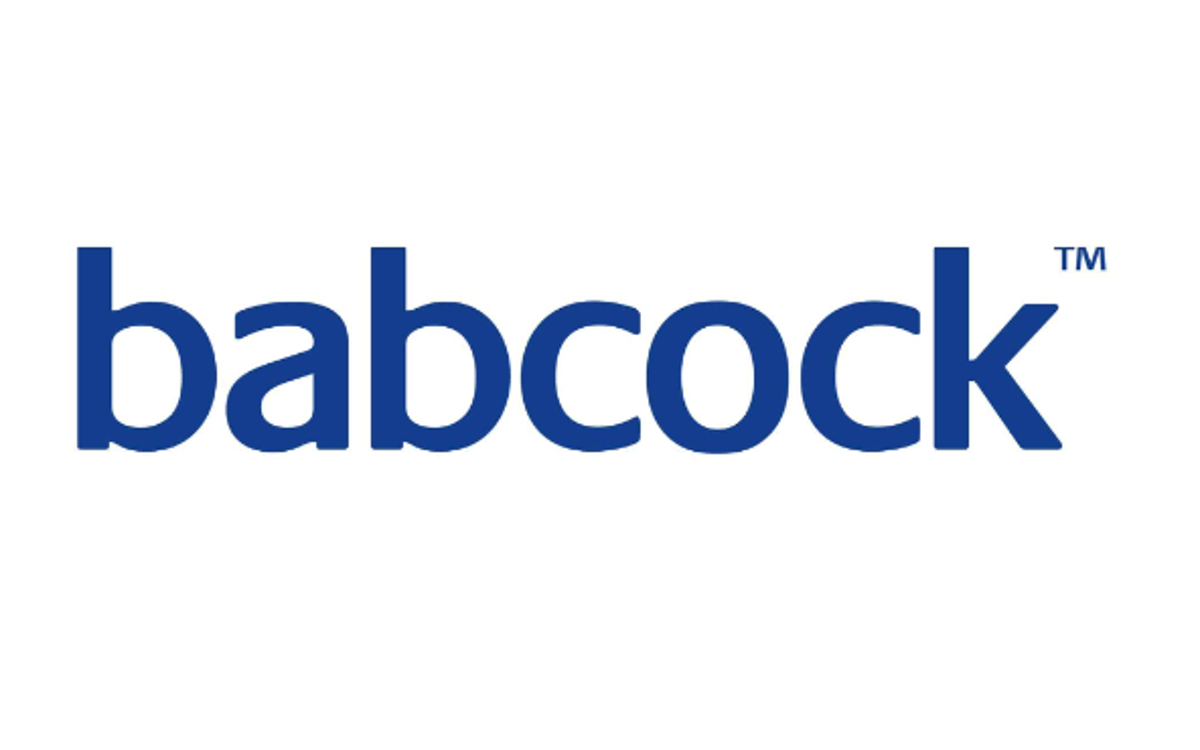
The role
As a Third Line Support Engineer, you’ll have a role that’s out of the ordinary. You will be key in the undertaking of fault investigations and performing upgrades and enhancements. You will also support an On-call rota for out of hours support.

The role
We are looking for a Propulsion System Engineer to join our team in the UK. You will become part of a growing Spacecraft Propulsion and Thermal group. Within this team, you will contribute to the definition and improvement of the Propulsion System designs of Spacecrafts. The activities will range from the specification definition up to the support to AIV activities and will include the execution of tests and technical interactions with suppliers.

The role
D-Orbit is hiring a systems engineer to join our growing UK systems engineering team. As an integral part of the group, you will be involved in both the customization of already flight-qualified platforms, such as the ION Satellite Carrier Vehicle, and the design of new advanced missions. Your ultimate objective as a systems engineer is to ensure your systems, the spacecraft, will fly safely to orbit, deliver the services required by mission objectives and eventually successfully accomplish its disposal.

The role
D-Orbit is hiring a system engineer to join our growing system engineering team. As an integral part of the group, you will be involved in both the customization of already flight-qualified platforms, such as the ION Satellite Carrier Vehicle, and the design of new advanced missions. Your ultimate objective as a system engineer is to ensure your system, the spacecraft, will fly safely to orbit, deliver the services required by mission objectives and eventually successfully accomplish its disposal.

The role
- Lead the application of iCOMAT's technology in the space domain working with customers and colleagues to create and optimise products for space.
- Act as the design authority for space bids and projects providing advice to colleagues in production and programme management.
- Support the formulation of plans for product and technology development.
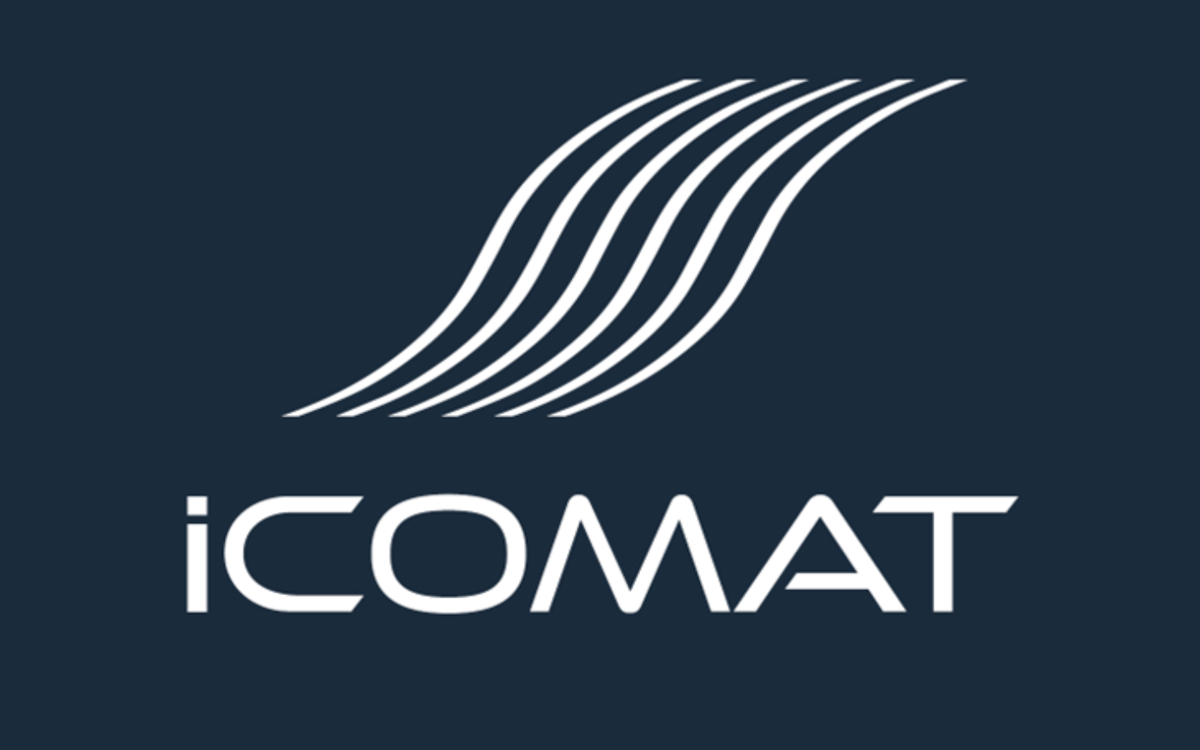
The role
- Lead the development of relationships with customers, partners and other stakeholders in the space sector and the identification of new opportunities for manufacturing sales and collaborative R&D opportunities.
- Develop, manage and deliver a backlog of sales opportunities using a structured, complex selling methodology.
- Provide direction and oversight to bids and the development of current contracts

Starion UK, now headquartered in Bath, is keen to recruit the best expertise to deliver space segment and ground segment systems and studies. Whilst there is not currently a recruitment campaign underway, we welcome CV’s from those seeking roles in these areas. If you are interested, please email [email protected] before the end of June 2024
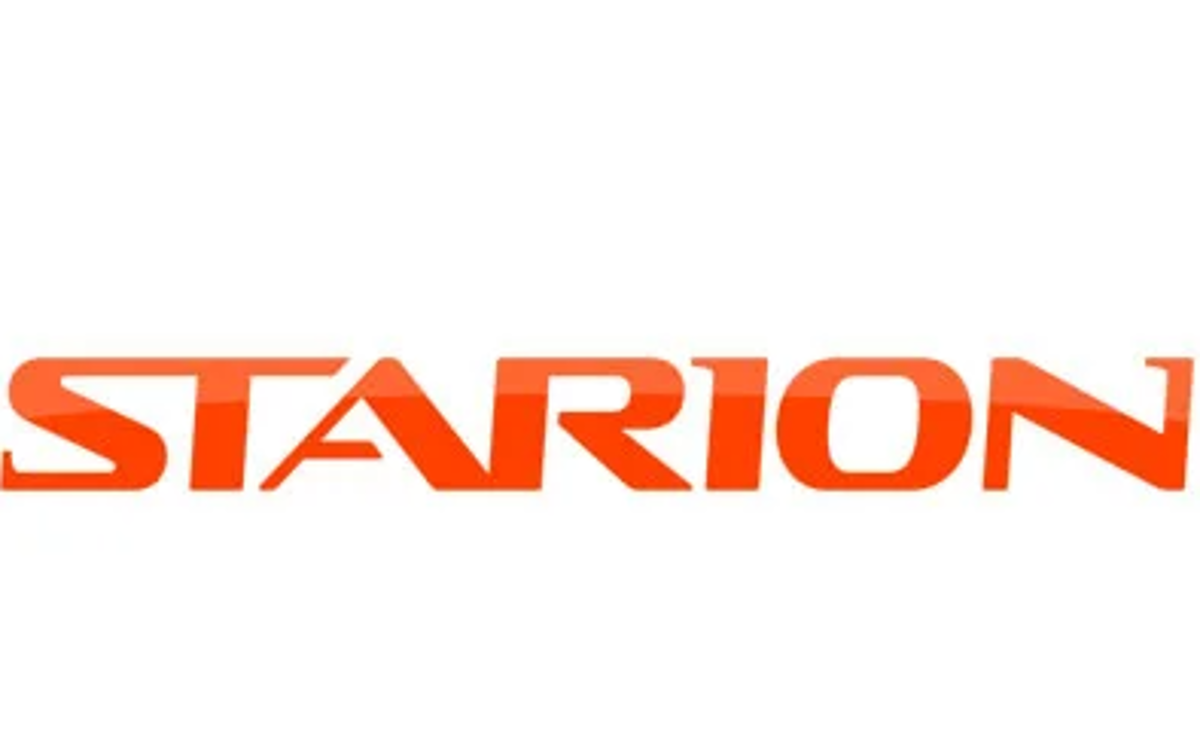
Space West 2024 Activity Page
Stay connected and witness our exciting endeavors throughout the year. Explore upcoming events, collaborative initiatives, and engaging projects.
